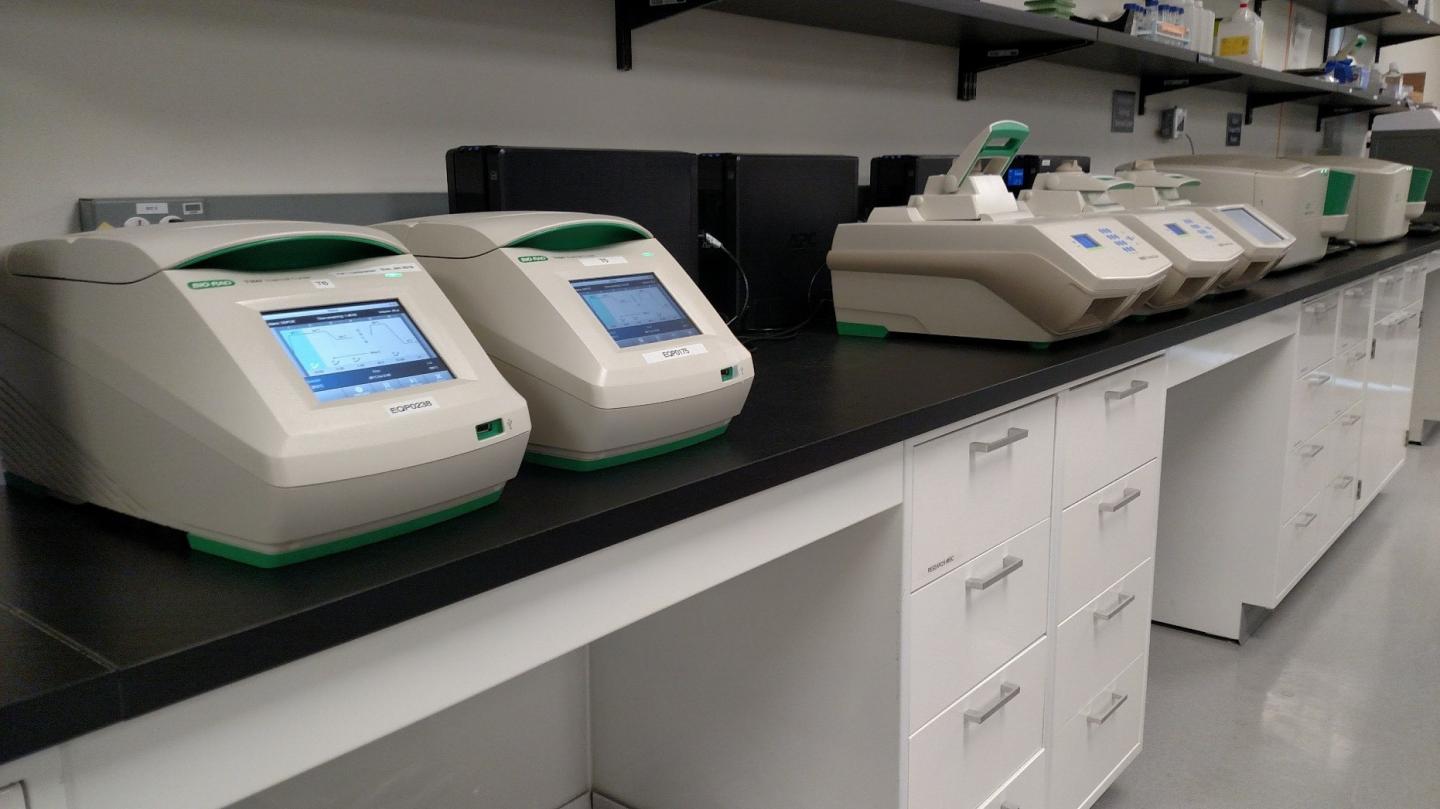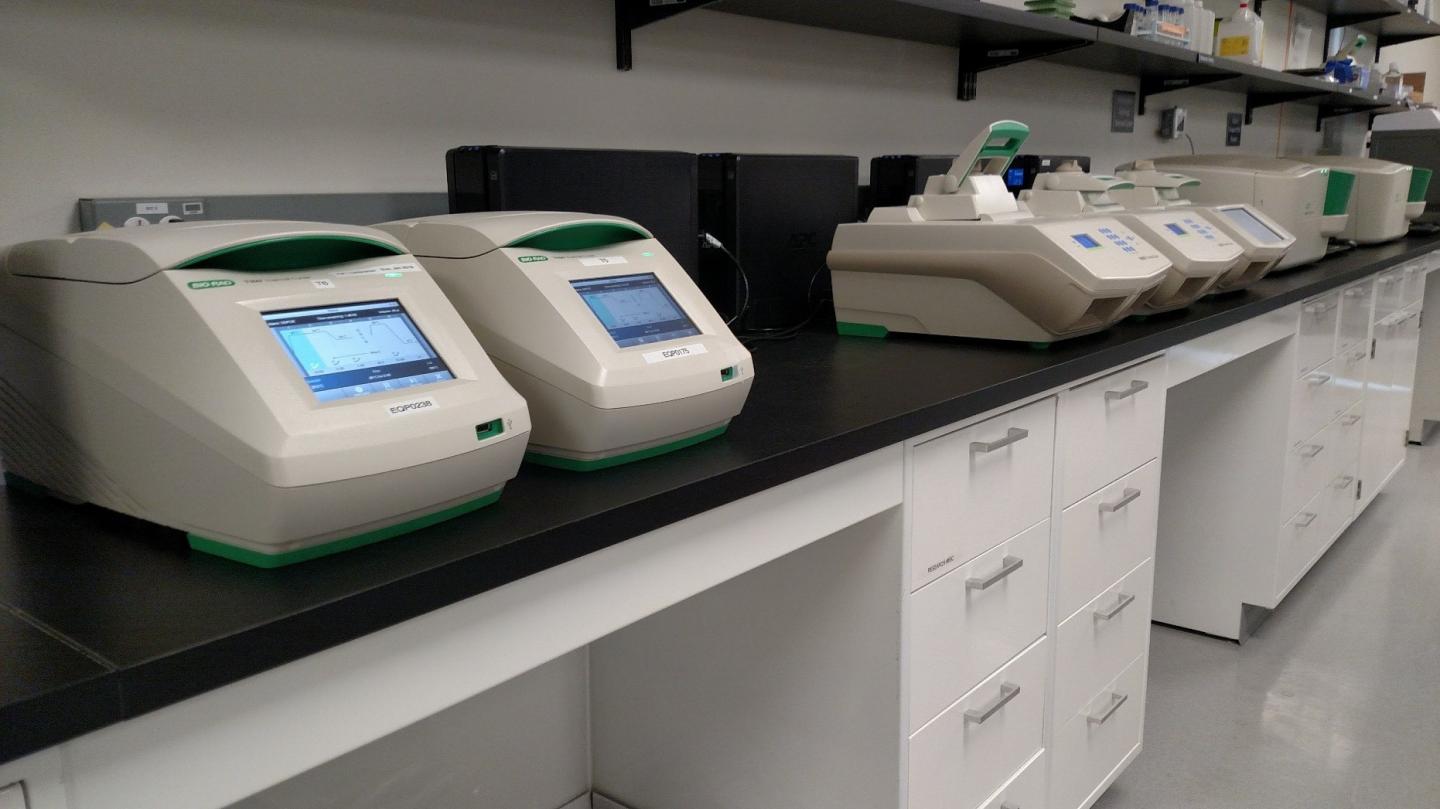
Credit: Biodesix, Inc.
Philadelphia, PA, April 19, 2017 – Identification of a specific genetic mutation in patients with non-small-cell lung cancer (NSCLC) helps clinicians select the best treatment option. Potential NSCLC patients usually undergo invasive tissue biopsy, which may often be unnecessary and delays treatment. A report in The Journal of Molecular Diagnostics describes a new blood test that can accurately and quickly identify genetic mutations associated with NSCLC, allowing clinicians to make earlier, individualized treatment choices – a step forward in personalized cancer treatment.
"This study is critical because it is the first to demonstrate the uptake of blood-based testing for actionable mutations in the non-hospital (community) setting. Physicians and patients in a community setting may not have easy access to a large hospital or other diagnosis/treatment facility. This assay provides results within 72 hours from sample receipt," explained Gary A. Pestano, PhD, Vice President of Development and Operations of Biodesix, Inc., a co-inventor of the test.
An actionable mutation plays an important role in the development or progression of a tumor. Specific therapies that target a mutation can improve outcomes, such as reducing the risk of death or lessening the severity of disease.
In the case of NSCLC, certain genetic mutations can be used to identify patients who might be sensitive or resistant to a particular cancer therapy. For example, epidermal growth factor (EGFR) mutations may result in sensitivity to drugs that are EGFR tyrosine kinase inhibitors (TKIs), such as erlotinib or gefitinib, whereas individuals with the EGFR T790M mutation are more resistant to these drugs. Patients with ALK rearrangements do not respond to EGFR-TKIs, but are sensitive to other targeted therapies (such as ceretinib). "The described assay can detect actionable mutations in patients diagnosed with earlier stages of NSCLC, thereby improving clinical outcomes," remarked Dr. Pestano.
The new test uses a highly sensitive gene mutation detection method that is based on the partitioning of DNA into droplets to detect specific circulating tumor DNA mutations and RNA variants in whole blood.
Of the more than 1,600 samples tested, 10.5% had EGFR sensitizing, 18.8% EGFR resistance, 13.2% KRAS, and 2% EML4-ALK (anaplastic lymphoma kinase) mutations. The test showed high sensitivity (>80%) and specificity (100%) for detecting each type of mutation. In most cases, blood tests and tissue biopsies yielded the same results.
Another advantage of the test is that it can be performed quickly: 94% of results were available within 72 hours of blood draw. In contrast, results from tissue-based testing can take weeks to obtain and can therefore delay time to treatment. In addition to providing insights regarding selection of treatment, this blood test may also prove helpful in assessing the presence of residual disease, recurrence, or relapse and detection of therapy-resistant cancer cells more quickly than conventional tissue-based methods.
The majority of samples came from patients under the care of community physicians. "These data highlight the adoption of mutation testing by the lung cancer community and demonstrate the utility of a centralized laboratory for the evaluation of actionable mutations from blood," commented first author Hestia Mellert, PhD, Director of Molecular Development at Biodesix, Inc. "Physicians in remote locations may now have greater and more rapid access to this critical patient information."
###
Media Contact
Eileen Leahy
[email protected]
732-238-3628
@elseviernews
https://www.elsevier.com/
############
Story Source: Materials provided by Scienmag





